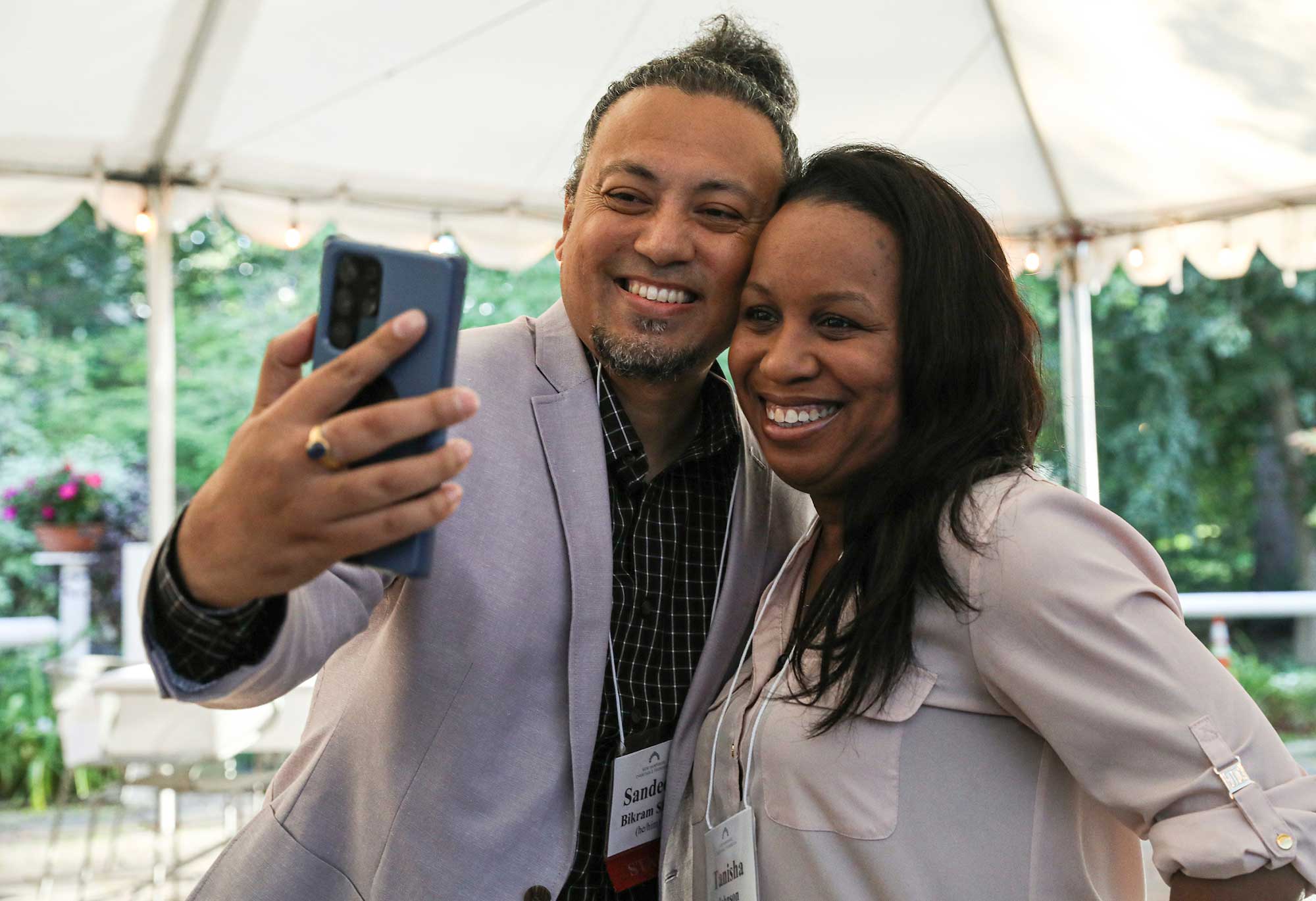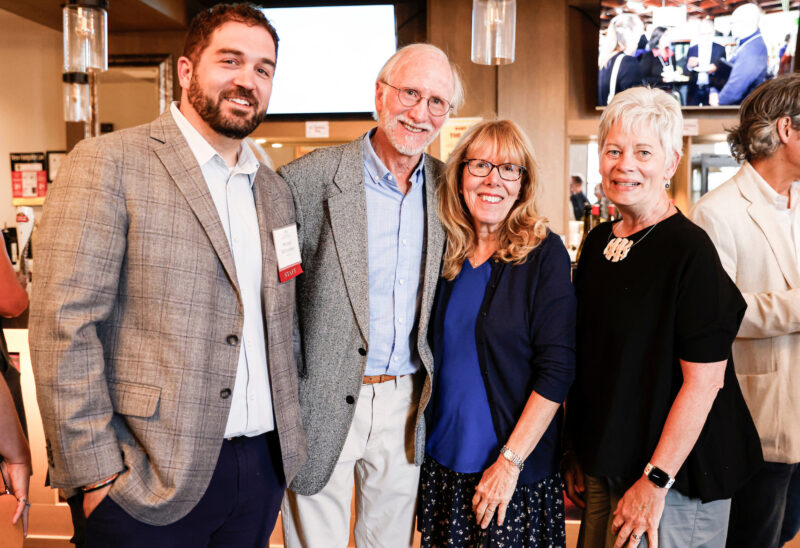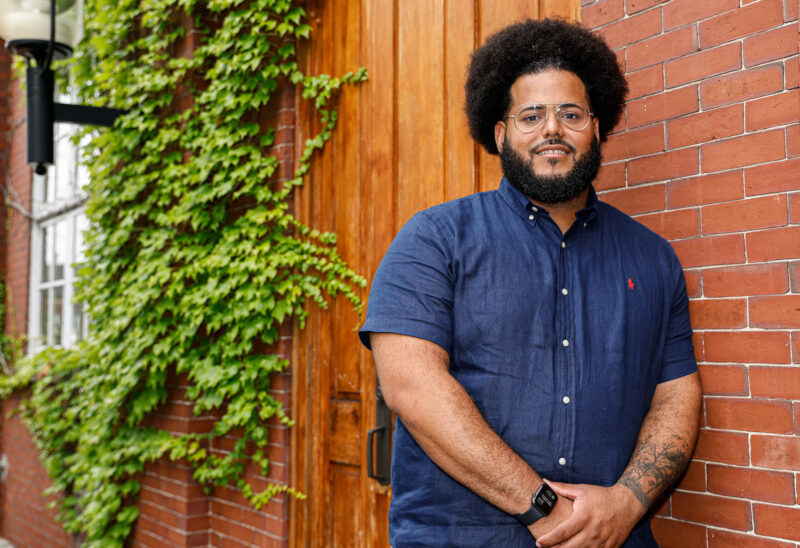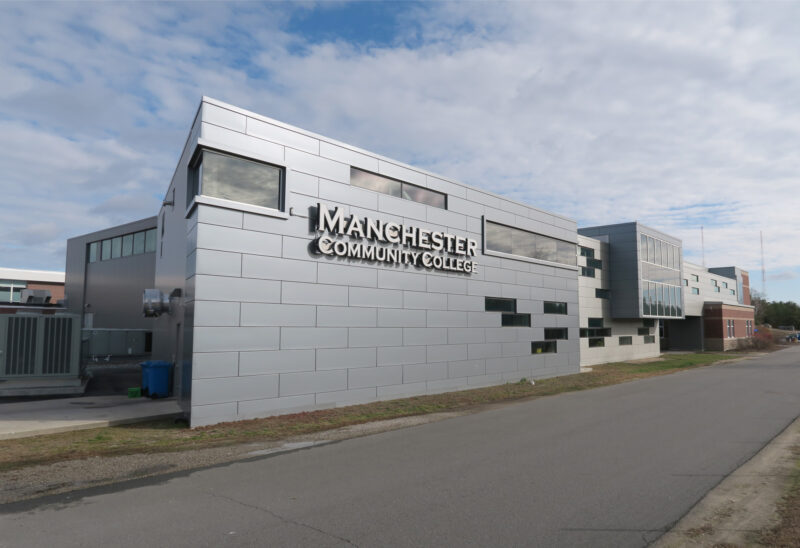Tanisha Johnson of Community Action Partnership of Strafford County spoke at a Charitable Foundation community event in Rochester in September. A transcript of her remarks follows.
Good evening, everyone and thank you for having me tonight.
When I was asked to come and chat about what it looks like for New Hampshire to be a New Hampshire for all, where everyone belongs, I was excited because if you know me, you will know I have a lot to say on that topic — because we are not there just yet.
I was excited though not to share how we are not meeting that goal but how we, Community Action Partnership of Strafford County, is coming together with our communities to ensure our families feel less burdens and challenges in their lives.
But before I can share of our impact, I wanted to really sit, well have you all sit, with the idea of what a New Hampshire for all where everyone can thrive, where justice and equity prevails in all areas of our systems — funding, housing, food, childcare, education, disabilities, politics, government, local and town offices — what does that actually look like and how do we continue to move in that direction?
We as a community are continuing to come together to implement an ambitious and transformative framework — one that can transform oppressive relations, reforming structural inequalities, and one that embodies the highest aspirations of all people that prioritizes our most marginalized and vulnerable populations.
Marginalized communities don’t need to be sympathized with, patronized, or rescued. We deserve to be valued and treated with respect and fairness. There is a need for access to information, opportunities, and resources so that there is contribution, success and thriving. This is not an entitlement. It’s making up for lost opportunities resulting from systemic barriers and persistent oppression.
Justice requires collective and ongoing participation; it is the concept that our evolving moral capacity will connect the individual’s well-being and happiness to that of the broader society — our community. In other words, when we start addressing the individual need in a long-term sustainable mindset, the whole benefits in return. We all have a role to play in this, and events like tonight, organizations like New Hampshire Charitable Foundation that shine a light on the impact our community organizations are making, are crucial to advancing a New Hampshire for all.
Getting off my soapbox, before I start getting into all the things, let me get back to why I am here. I am Tanisha Johnson, and the child and family services director at Community Action Partnership of Strafford County.
Community Action Partnership of Strafford County (CAPSC) is a private nonprofit founded in 1965 with a mission to reduce barriers to help clients improve their economic stability and well-being through education, advocacy, and partnerships.
We work with community, state, and federal partners to assist children, families, low-income, and elderly residents in becoming or remaining financially and socially independent through a variety of coordinated programs. Nearly 1 out of every 5 families here in Strafford County participate in CAPSC’s programs. Without the services provided by our agency, many residents would be without a means to provide for their basic needs, including food, education, childcare, utilities assistance, transportation, housing, emergency shelter, and access to other services.
Just to give some numbers, this impact means:
- We served 20,000 free meals this summer throughout Strafford County with the Summer Meals Program.
- Through the Low-Income Water Assistance Program, we paid out $29,890.60 on behalf of 95 individuals.
- Homeless Prevention Services (NHERAP, ESG Rapid Rehousing/Homeless Prevention, etc.) paid out $19,267,974.16 in assistance for 5,332 individuals to pay for rent and utilities. This includes payments to motels so that homeless individuals were housed through the winter.
- Our day center from June 1 to now has had 227 visitors and we have provided over 700 meals to those in need.
- Within our homeless outreach, we have done over 150 wellness checks.
- Our Family Resource Center has given over 100 families diapers over the course of this year.
- Our Family Resource Center has provided emergency funds and needs to 98 families — this could be gift cards, groceries, gas cards, and any other needs.
- In the past year, our food pantry has helped over 1,800 families.
- Our home visiting programs have seen over 200 families and worked on child development, maternal health needs, and more.
- We have about 250 children in our Early Care and Education program, which includes our Head Start and Early Head Start programs. In this program we have served over 1,000 free and reduced lunches a year for families who qualify.
Numbers say a lot, but impact is truly defined by stories.
A few months ago, we had a dad come into one of our Early Care and Education Centers. He walked in the door, off the street, with his two-year-old daughter. He had just received full custody of his daughter, could not quit his only means of income and he needed childcare but also, he knew she needed help because of her disabilities but didn’t know how to get that help. Our team took him, got him set up in childcare, and was able to get her evaluated and within services. Our little one is now thriving in the classroom, dad is back to work, and comes into the center every day smiling.
Another mother came to the CAPSC Family Resource Center after being in recovery for five months. She did not know what she was going to do with a newborn, needed support, guidance and resources. In her words, CAPSC has helped her emotionally, practically, and personally as she learned to care for her baby. “You’re surprised you didn’t think of it before,” she says. “With being in the CFSS (Comprehensive Family Support Services), I want to have more confidence in myself and gain more control over the direction of my life.”
CAPSC has been integral to ensuring fulfillment of a person’s basic needs, like shelter, food and community. We do this also by collaborating and partnering with our community organizations and have been able to create new, brighter futures not only for them, but also the greater community to which we all belong.
We talk a lot about collective impact or collaborative impact. And yes, these are powerful tools to help our communities. The challenge though with collective impact is that when it is not centered in equity and justice, it will fall short in the potential to dismantle long-standing inequities, repair historical injustices, and advance better outcomes for those who have been left behind. Let me say it differently, without intentional attention to these and other equity strategies on the ground, collective impact will run the risk of reinforcing, instead of eliminating, the inequities at the root of the challenges we aim to solve.
If attaining equity and justice is our goal, if a New Hampshire where everyone belongs is the goal, I challenge you to start looking internally and then systemically around you.













![Rev. Heidi Carrington Heath joined Seacoast Outright. [Photo by Cheryl Senter]](https://www.nhcf.org/wp-content/uploads/2024/05/Heidi-Carrington-Thumbnail-800x548.jpg)
![Dr. Jennie Hennigar treats a patient at the Tamworth Dental Center [Photo by Cheryl Senter]](https://www.nhcf.org/wp-content/uploads/2024/05/TCCAP-Hero-800x548.jpg)

